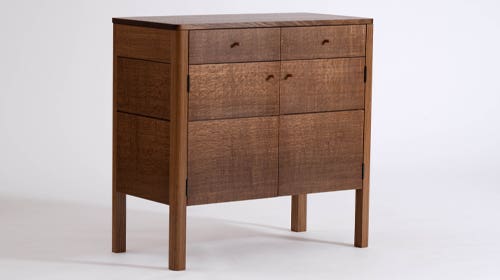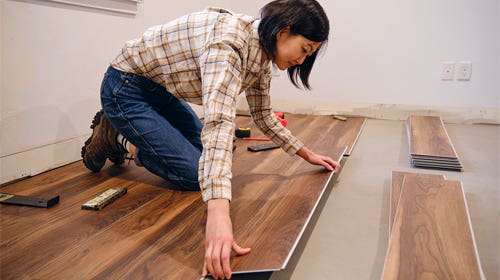Recession buster: Strategies to keep your shop afloat
Tim Fagan has been a professional woodworker for more than 25 years and is the owner of Accolade Furniture, a millwork shop in Wallingford, Conn. Like every small shop in…
Tim Fagan has been a professional woodworker for more than 25 years and is the owner of Accolade Furniture, a millwork shop in Wallingford, Conn. Like every small shop in the woodworking industry, the last year has been a very trying one for his business. Few businesses have escaped the wrath created by the recession, and Fagan has been forced to cut his work force from 10 to four during the last eight to 12 months.
But Fagan is a thinking man, an idea kind of guy, who has made some decisions along the way that will keep him in business, such as decreasing his shop space, using CNC machinery, having a diversified product line, and ridding his shop of excess machinery and materials.
“I happen to be in a little better situation than some people,” says Fagan. “You have to be flexible and be able to do a large variety of things, which for smaller shops is a lot easier than for larger shops that are set up specifically to do one thing. We do architectural stuff and what we’ve had to do because of the slower architectural market is go more into the furniture, which we fortunately were set up to do — a lot of people are not.
“If I had focused on the medium-end kitchen and the market ended up doing this, I would be scratching my head now. Or if I was a stair builder who only did a certain kind of boxed stair I would be in trouble now. But that’s not how we approached it.”
The Connecticut shop owner has sold some of his unused equipment, materials, wood components, and other items through tag sales and online using Craigslist. Now he is assisting other shop owners so they can do the same.
“I literally have, unfortunately, collected huge amounts of machinery because we had a lot of people here at one point,” he says. “I’m also selling some machinery for other people. We’ve opened up part of the shop as, what I would like to call, the industrial tag sale — moving excess materials that have been here for years that were just leftovers or overruns, furniture, furniture components, machines, machines and materials from other shops.”
Fagan believes one of the biggest problems in the woodworking industry is that it is so isolated. He says the industry is the least standardized, the least organized and, in many ways, the least professional of a lot of industries. And he’d like to do something to change that.
“It’s a bunch of very independent-thinking people who generally don’t spend a lot of time networking with each other. Eventually, you realize you are kind of isolated not only within your own community, but within your own industry. So what we’re trying to do is we’re going to set up a situation where I’m just hoping to get people in here just to meet and greet each other and sort of share the misery, so to speak.
“Everybody tends to get good at something and if we all are aware of what our neighbors are good at we can sort of use each other. In these kinds of times, that’s a solid way of keeping us all in business. I don’t want to see everybody just slaughter each other. A lot of times people get desperate and it’s not good for anybody.”
Fagan intends to follow his plan to increase networking in the woodworking community and admits it’s a learn-as-you-go experience. And with no indication of an economic turnaround in the short term, he believes any idea is worth pursuing.
“This is a long-term situation that we’re all going to have to adapt to. Everything will change and I don’t think it’s going to change tomorrow, but I think as an industry we’re going to have to change slowly over the next four or five years. We’ll see. We either can dwell on the past or as a country we can move forward and I think we should embrace the change because a lot of good will come out of this.”
For information, visit http://www.accoladefurniture.com/.
— Brian Caldwell







